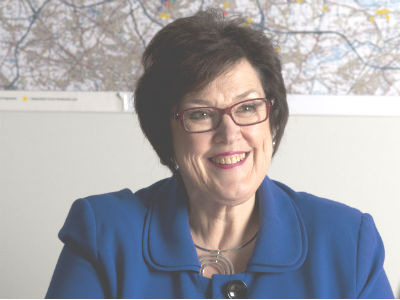
Councils face being short-changed by government in delivering the transformation of social care required by the Care Bill, adults’ services leaders warned today.
The Department of Health’s costings on implementing the bill risk not taking into account the scale of change required, at a time of declining council budgets and a new push to integrate social care and health, heard delegates at the National Children and Adult Services Conference.
The warning came from Local Government Association chief executive Carolyn Downs and Association of Directors of Adult Social Services president Sandie Keene, in a session on how councils should prepare for implementing the Care Bill in April 2015.
In response, DH director general for social care Jon Rouse promised to keep the government’s costings under review and revise them in the light of new evidence.
Raft of new social care duties for councils
As well as modernising existing social care law, the bill would set a new nationwide eligibility threshold, and place duties on councils to provide information and advice, preventive services and, for the first time, support for carers with eligible needs. It would also overhaul the social care funding system to extend means-tested support to more care home residents and enable people to gain full state funding for their ‘reasonable’ care costs once they have been assessed as passing a self-funding cap. This policy is expected to see an additional 500,000 people with eligible needs approach their council for an assessment so they can qualify for the cap.
“The real threat [around the Care Bill] is whether we’ve costed this properly,” Keene told delegates at the conference in Harrogate. “There has to be some work done on that. My main concern is the new burdens and duties around carers. In Leeds [where Keene is a director], if you put a price tag on the volume of caring it’s three times my budget. We’ve got to get the funding right.”
Severe challenge
She also warned that councils faced a severe challenge in implementing the bill at a time when they were having to deal with year-on-year budget reductions and respond to the government’s push to integrate social care and health.
She said Adass was doing some early work with a few councils to financially model the impact of the Care Bill and would then survey all directors in England to gain a full picture of the financial impact of the changes.
In response, Rouse said: “I’m not going to pretend that this is not a very difficult thing to pull off – the reforms and the integration programme at a time of funding constraint. We will keep the costs under review so if people come back to us with questions we will keep testing to check if we’ve got our numbers right.”
Questions councils must ask themselves
However, Rouse also challenged his audience of local government leaders to ensure that they were adequately preparing themselves for the bill’s implementation. He said they needed to ask themselves six questions:
- Do you have a programme in place to deliver this work and a lead officer responsible for it?
- Do you know what needs to change and by when, and the scale of the challenge in getting there?
- Do you understand the scale of change required in areas like IT and workforce development?
- Do you have plans in place to identify your self-funders?
- Do you know how you will engage with your voluntary and community sector in delivering the bill?
- How will you model the likely cost?
Collaboration
In what Rouse described as an unprecedented example of local-central government collaboration in implementing legislation, the DH, Adass and the LGA have set up a single office to help councils deliver on the Care Bill.
Rouse said staff from the joint office would be getting in touch with individual councils in the New Year to identify their support needs.
The conference also heard that the bill needed to be more radical in pushing through its agenda of reshaping social care away from crisis intervention towards promoting well-being and building on people’s strengths, rather than their deficits.
Alex Fox, chief executive of small providers’ umbrella body Shared Lives Plus, said this should include outlawing practices that prevented this vision from being realised. This included councils commissioning home care by the minute, restricting people with personal budgets to choosing from approved provider lists and setting contracts with providers that did not fund workforce development.
More on the Care Bill
Social workers must improve legal knowledge, not gain new power, to protect adults
No return to regular assessments of councils’ adults services, says minister


 A trauma-informed approach to social work: practice tips
A trauma-informed approach to social work: practice tips  Problem gambling: how to recognise the warning signs
Problem gambling: how to recognise the warning signs 




 Find out how to develop your emotional resilience with our free downloadable guide
Find out how to develop your emotional resilience with our free downloadable guide  Develop your social work career with Community Care’s Careers and Training Guide
Develop your social work career with Community Care’s Careers and Training Guide  ‘Dear Sajid Javid: please end the inappropriate detention of autistic people and those with learning disabilities’
‘Dear Sajid Javid: please end the inappropriate detention of autistic people and those with learning disabilities’ Ofsted calls for power to scrutinise children’s home groups
Ofsted calls for power to scrutinise children’s home groups Seven in eight commissioners paying below ‘minimum rate for home care’
Seven in eight commissioners paying below ‘minimum rate for home care’
 Facebook
Facebook X
X LinkedIn
LinkedIn Instagram
Instagram
Comments are closed.